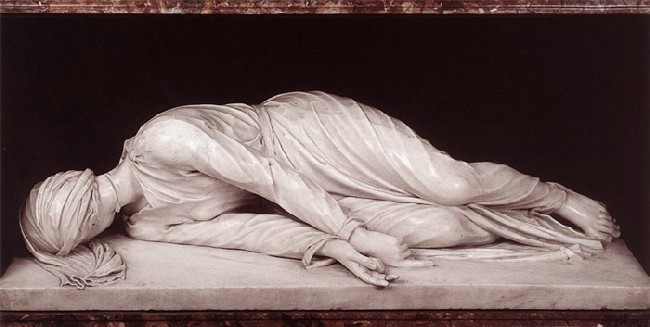I read the following today about St. Gregory the Great (a pope and doctor of the Church who lived from c. 540-604 AD):
St. Gregory the Great "exercised a decisive influence on the share given in monastic culture to the spiritual tendency .... St. Gregory was a great pope, a great man of action; his Pastoral Care and his Letters have become sources of moral theology, canon law, and medieval pastoral theology. But he was also a great contemplative, a great doctor of the life of prayer." (1)
My pre-oblate view was that the contemplative life meant a life that was not involved with the world. I think my previous ideas were part of the modern view that faith/religion are private matters not related to action in the world. My reasoning might have been: if a religious life tended to diminish a person’s involvement in the world compared to a nonreligious person, then a contemplative religious life would tend to diminish a person’s activity even more.
This was all part of my general sense that monastic contemplative living was marked out primarily on a scale in which the "contemplative life and less worldly involvement" were on one end of the scale and the "noncontemplative life and more worldly involvement" were at the other end of the scale. The test of the contemplative life became simply where a person was placed each day on that one dimensional scale. On days when there was more worldly involvement, the person became less contemplative.
Somehow I think St. Gregory would not have viewed his life this way. And I think that this great man who worked fully in the world might still be good example for a simple oblate today.
I think that St. Gregory lived the Christian life, deeply spiritual and contemplative, full of prayer, and because of such direction and strength, he was able to be fully involved in God’s world. Where else would he be?
_________________________
Footnote
(1) The Love of Learning and The Desire for God: A Study of Monastic Culture by Jean Leclercq. Fordham University Press (1982), Edition: Rep Sub, Paperback, Page 25
Wednesday, November 12, 2008
Monastic Myths. A Benedictine oblate blog
Subscribe to:
Post Comments (Atom)










"Work doesn't have to stop prayer and prayer doesn't have to stop work."
ReplyDelete-Blessed Theresa of Calcutta
I've recently developed an appreciation for Bro. Lawrence's The Practice of the Presence of God. By practicing active recollection of God's presence, for Brother Lawrence, there was no difference in his union with God during quiet prayer time and during times of active work.
Rebecca,
ReplyDeleteWow, your comment set me on an Internet search for Br. Lawrence (I had never heard of him before) and I visited several web sites and then found a link to Catholic Answers and a thread that gave information on him and the book.
After I learned a little about Brother Lawrence, I began to read the posts of a poster named "Dave" which led me to other threads and other topics, I think they were on Carmelite spirituality generally and that led me to another thread (also not about Br. Lawrence).
By then in my wandering around I was reading only what happened to catch my eye on many other topics, but at the end of one thread was this final post:
August 23, 2008 Post on Catholic Answers
which contained a link to “Catholic Spirituality.” I saw links in the many posts on many topics as I read Catholic Answers, but the only link that caught my eye and the only one I decided to click on was the “Catholic Spirituality” link and shazam, I was over at your excellent blog, To Know His Love.
OK, I am putting Brother Lawrence on my To-Read List thanks to your constant pestering! ;) (That is a joke.)
Oh, I also wanted to add that I had also never heard that quote from the Blessed Theresa of Calcutta -- super. Thank you very much.
ReplyDelete